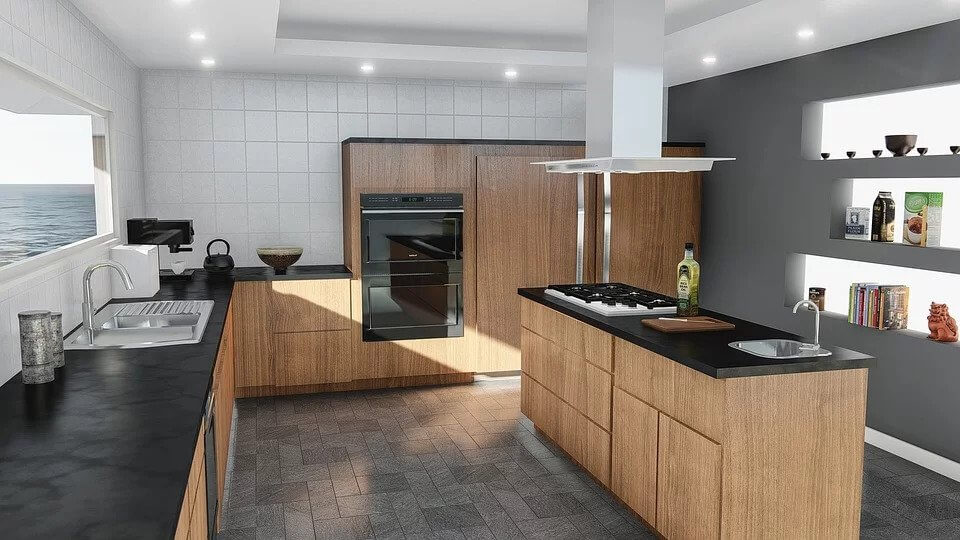Redesigning your home involves an array of instances where one needs to select between the horizon of available options. One such debatable choice is to choose the perfect material for your worktop. Wood, Steel, Marble, Glass, Concrete, etc.- The list is endless. Conventionally, people preferred substances like granite or marble, but today, a shift is observed towards newfangled artificial alternatives like quartz.
This change in inclination arises several questions:
- What could be the reason for this drift?
- Is quartz superior to granite?
- Or is it just a matter of aesthetics?
Here is all that you need to know about the two popular availabilities!
Which is more viable: conventional or modern?
Both the worktop materials, granite and quartz, have significantly many fans. One reason for this fondness could be that the materials share similar properties. Both of these are equally beautiful and durable. But these factors are not the only ones taken into consideration when selecting the perfect fit for your dream house.
The maintenance, the price, the implications they have on the environment and a few other peripheral factors are equally important.
People may have different opinions. But the statings substantiated by shreds of evidence are the ones which make a difference. An individual must know the features of each substance before being trapped by word of mouth (from the advocates of each side).
One should weigh all possible pros and cons, but even before that, he should know where each of these worktop materials come from.
The origination of the talks of the town
Granite might be regarded as a persistent fad since a considerable amount of time, but quartz worktops are no less an asset.
Granite happens to be a naturally occurring substance which is mined at different places around the globe. It is cooled and hardened over time to form the slabs which appear to us as countertops. Since molten lava is what makes granite, it offers different colours depending upon the mining site.
On the contrary, quartz kitchen worktops are artificially manufactured by combining different resins along with quartz chips that are found in the earth’s crust.
The difference between both the materials is not limited to their formulation and creation. However, this might influence other fringes worth consideration.
Detailed Comparison
As a homeowner, the renovation process comprises of detailed analysis of all possible determiners. With either one being a high-end option, one has to be mindful of even the smallest factors.
To benefit the decision-making, we have compiled seven significant reasons why one should prefer one over the other. These rationales are:
INFINITE CHOICES & UNIFORMITY
No single granite slab is an exact imitation of a previous one, and this is because it is hewn right from nature.
Because quartz is lab-cut, the material offers consistent colouration and uniform look.
The abundance of colours, patterns and classes expands the fan pool. There is a quartz countertop for each personality. To parallel the desired vibe and to offer an instant facelift, quartz is the most suitable choice for your apartment.
MAINTENANCE AND CARE
Quartz worktops do not have any capillaries and therefore, require negligible periodic sealing as compared to granite kitchen countertops. Granite, which is available naturally, consists of cracks which widen with time. These cracks weaken the seal and require a periodic check.
The reason quartz is an easy to maintain material is that, unlike granite, it is a non-porous substance which makes it less prone to permanent stains. On the other hand, due to relative porosity, granite quickly absorbs liquids and is more likely to get affected by unintended spills.
APPEARANCE
Though granite offers a range of options, yet it can not be tailor-made like a quartz worktop. In the light that quartz is human-made, it can be made to serve people of all tastes. The customer specificity is a significant plus point for people to select quartz kitchen worktops.
Though the granite market is flooded with patterns, yet one has to explicitly search for a piece that complements the tone of the house. However, in the case of quartz- customization impedes the need for looking out.
RAMIFICATION ON THE ENVIRONMENT
Regional manufacturing of quartz saves on the transportation cost and proves to be more environmentally feasible.
Despite the fact that granite occurs in nature, it is still not as environmentally-friendly as quartz. Quartz does not witness an intense quarrying process and cuts down the wastage of energy.
MONETARY VARIANCE
There is not any high differentiation in the cost of both the materials. How many pounds do you, as a homeowner, should expect to invest is affected by the quality and the edging style you choose.
Still and all, it won’t be wrong to say that the best value for money is provided by quartz. This preference can be once again reasoned to the fact that granite has lesser availability than quartz since it occurs within the earth.
CLEANLINESS AND HYGIENE
Quartz is chemically inert, while granite is not. Hence, it is easy to wipe quartz kitchen worktops using chemically formulated cleaning compounds or substances like citrus juices. Their low reactivity to chemicals ensures that the cleaning process does not hinder the appeal and shine of worktop substance.
Additionally, they are safe from microbial growth which promotes the hygiene of the place and the health of the inmates.
STRENGTH AND DURABILITY
Quartz outshines granite when it comes to solidity. This engineered piece of magic is scratch proof and features extreme hardness.
The convincingly excellent property of quartz makes the cutting and installation process hassle-free. Natural stone requires comparatively more effort to be moulded into different shapes and sizes.
Since the former is built to undergo all kinds of beatings and harsh circumstances, the manufacturers offer a warranty with the sale of each quartz worktop. Quartz is nearly indestructible owing to the property that it is corrosion resistant and withstands wear and tear. It is one of the most long-lasting substances as compared to all other competitors.







